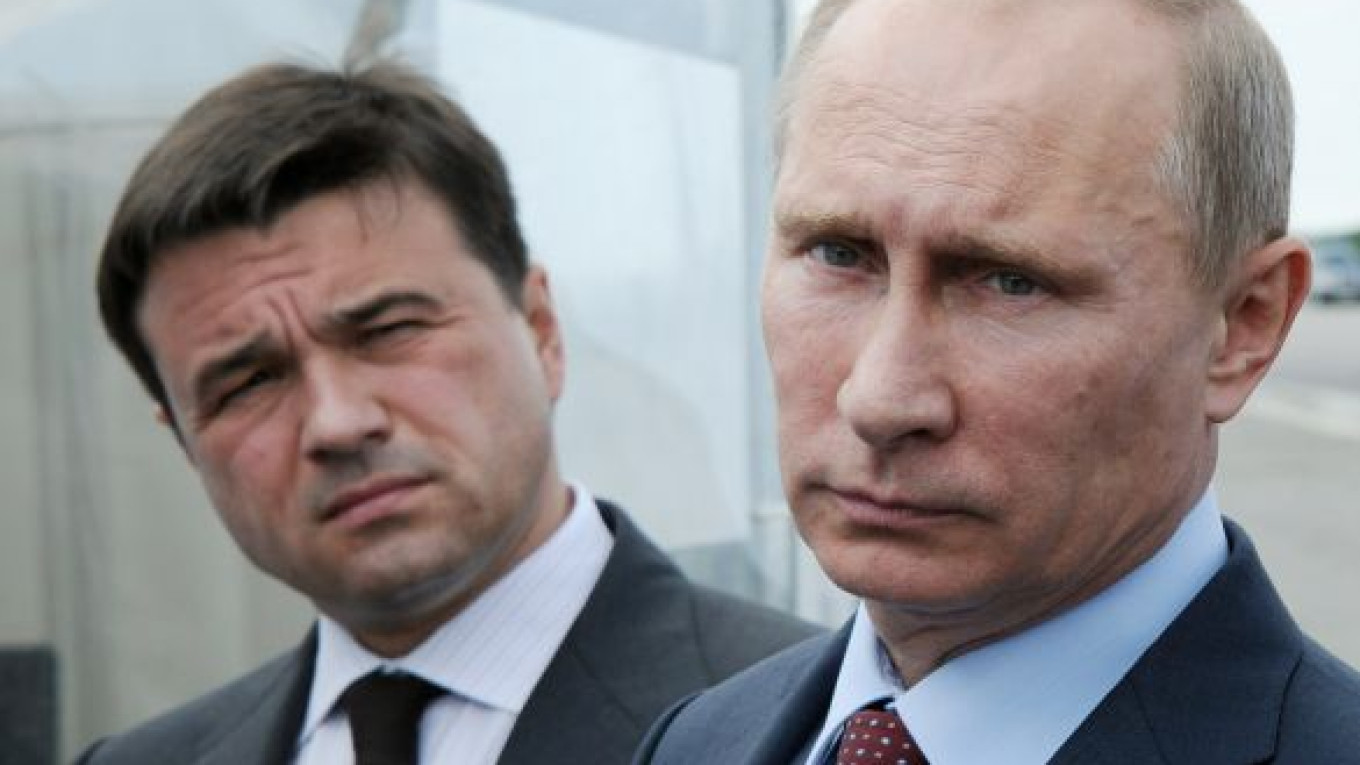The Russian Direct Investment Fund might join forces with two of the world's major sovereign funds to help finance construction of the Central Ring Road around Moscow, as the government is seeking to save the budget funds by wooing private investors.
The RDIF — which is the Kremlin's investment vehicle aimed at attracting foreign investors — could provide up to 60 billion rubles ($1.8 billion) for the project, with the sovereign funds being committed to participate, the RDIF's chief executive Kirill Dmitriev said.
The economy of Russia's infrastructure projects is such that they are attractive for potential foreign investors, Dmitriev said.
"The government provides additional guarantees and we see attractive yields, otherwise we wouldn't invest," he told The Moscow Times on Tuesday.
He declined to specify the names of the sovereign funds that could participate in the project.
Dmitriev made the comments the day after participating in a meeting on the development of road infrastructure in Moscow and adjacent areas chaired by President Vladimir Putin.
The participants of the meeting, which also included acting Moscow Mayor Sergei Sobyanin, acting Moscow region governor Andrei Vorobyov and Transportation Minister Maxim Sokolov, discussed financing schemes for the Central Ring Road, whose total cost is estimated at 300 billion rubles.
Half of that amount could be provided from the National Welfare Fund, while the remainder should be shared by the federal budget and private investors, Sokolov said.
Private investors might give 76 billion rubles, with the 74 billion rubles coming from the budget, he added, according to a transcript on the Kremlin website.
To finance the 339 kilometer Central Ring Road, money from the National Welfare Fund will be invested in corporate bonds issued by Avtodor, a state-owned company in charge of building toll roads, Economic Development Minister Alexei Ulyukayev said. The maximum maturity of the equities is 28 years, with the yield equal to the inflation rate plus 1 percentage point.
Ulyukayev said that using the National Welfare Fund would help attract private investors to the project, with the 60 billion rubles being the smallest possible investment.
"There is a possibility that we will raise more funding from investors, so we could consider saving government funds," the minister said, adding that up to 91 billion rubles could be saved.
Investors might be interested in the project if they have clarity on its economic structure, said Vyacheslav Smolyaninov, a strategist at UralSib Capital. To make a decision on cofinancing, they are likely to look at a number of factors like the profitability period and guarantees on the project, he added.
The financing scheme proposed by the government might not impress investors, since it in fact involves the state undertaking additional obligations, which it guarantees by itself, Smolyaninov said,
If private businesses friendly to the Kremlin take part in the project, it will indicate that high returns on investment are expected, he added.
He said one such example was the construction of the M11 toll highway between Moscow and St. Petersburg, two sections of which are being built by bridge developer Mostotrest. The company is owned by brothers Igor and Arkady Rotenberg, with the latter being Putin's former judo sparring partner.
The RDIF is considering participating in a tender to build another section of this road, Dmitriev told Vedomosti. A possible co-investor is Australia's infrastructure fund Macquarie, which co-owns a 26 percent stake in power generator Enel OGK-5 together with the RDIF, he said.
Avtodor is accepting bids for the tender till September to choose a contractor by April 2014. The construction is valued at 83.1 billion rubles, of which 20.8 billion rubles expected to be contributed by private investors.
The Central Ring Road is expected to become operational by 2018, Putin said.
He also called for minimizing risks of the project by eliminating any possible corruption schemes.
To avoid misuse of the money from the National Welfare Fund, the Finance Ministry proposed legislative changes to the rules of investing the fund's money into bonds issued to finance big projects. Amendments drafted by the ministry envisage that prospectuses issued for such bond issues should carry information on the projects to be financed from the National Welfare Fund, Vedomosti reported Tuesday.
The ministry also proposed banning the National Welfare Fund from buying the bonds of a specific project more than once, the report said, citing an explanatory note for the bill.
The Central Ring Road is one of the three projects expected to receive financing from the National Welfare Fund. Its size totaled $86.9 billion as of Aug. 2, according to the Finance Ministry's website.
The plan was voiced by Putin at the St. Petersburg Economic Forum in June. A total of 450 billion rubles from the fund could be channeled to finance big infrastructure projects in Russia, he said, adding that cofinancing by private investors is a critical condition for carrying out the initiative.
The Central Ring Road is expected to help ease congestion in the capital by diverting part of auto traffic from the Moscow Ring Road.
The other two projects to receive financing from the fund are construction of a high-speed railway between Moscow and Kazan and an upgrade of the Trans-Siberian Railroad.
Contact the author at irina.filatova@imedia.ru


